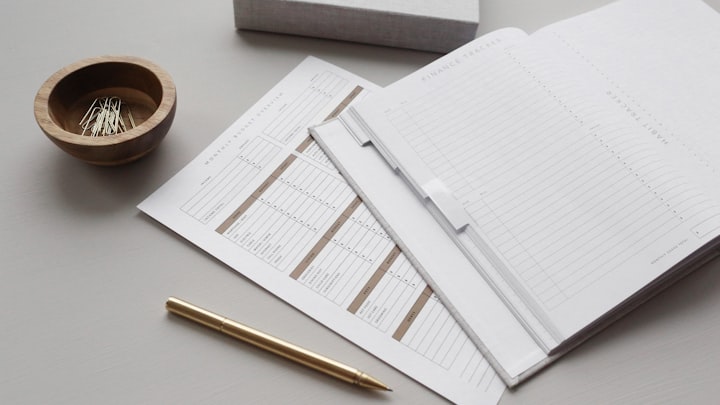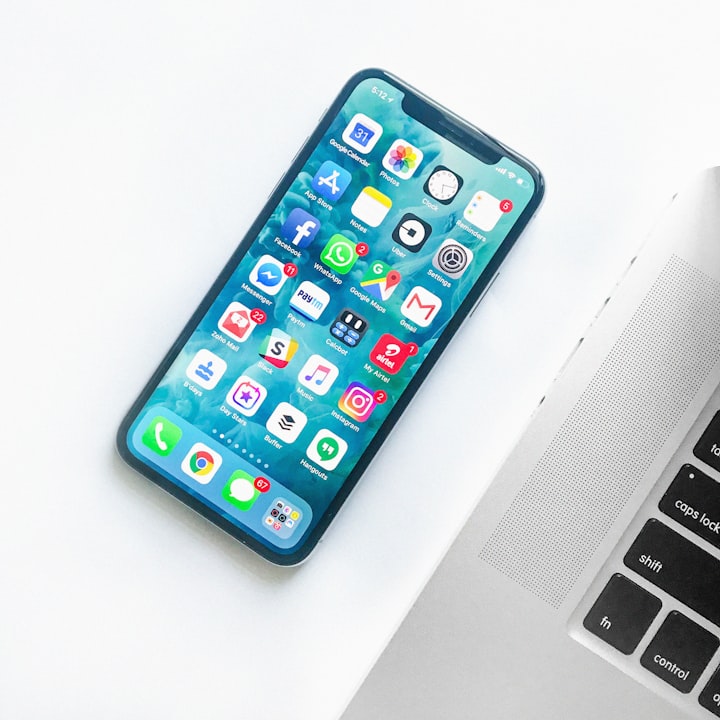I was deep in debt. My girlfriend had sudden medical issues and was forced to move back home -- Suddenly I was responsible for a 2 bedroom apartment and all of its bills. Admittedly I didn’t know much about managing my money wisely. I had a little bit of savings, but that was more of happenstance rather than good management. I was working at an electrical contractor at the time, making $18/hour installing cameras and security systems. It wasn’t bad money, I was just bad with money.
Most positive results come with some kind of plan and goal in mind. Winning the lottery, or 'getting lucky' happens too far in-between to be relied on. That's the first lesson I had to learn, and that’s where a budget comes in. My budget was a monthly goal I had to strive for in order to pay my bills. My first budget looked a bit like this:

"The first step to recovery is admitting you have a problem."
I'm sure we have all heard different variations of this quote before, and this budget really put it right in my face. My problem was that I had too many bills, and not enough money. At this point I was paying the minimum balance on my credit cards just so I could use them to pay off other bills. It was an unsustainable cycle that just kept adding to my stress.
Cutting Costs
You might notice that the budget above doesn't include an allotment for groceries, food, or any unnecessary expenditures. I had no idea how to put a number to that. I had never tracked my food purchases before, and never worried about using coupons or looking for sales. But it was quite obvious that now I really needed to figure it out.
Unnecessary expenditures was the first and most obvious thing to go. I couldn't afford to go out to the movies or go shopping for nonvital purchases. But what is classified as a nonvital purchase? Clothes are a necessity. I use my phone everyday, that's a necessity. I had to ask myself a brutally honest question: "Do I really need these things?" Were they a necessity or were they a comfort?
I had a lot of clothes at home. And while they might not all fit perfectly, I could still wear them. In fact it challenged me to do more research into my own fashion. I learned how to combine the clothes I already had to look more professional and put together.
My phone was the next thing, it was slowing down and the battery wasn't lasting as long. But I couldn't spend $800 on a new one, or have an additional $30 added to my monthly phone bill. Again I did some research, and found a couple ways to speed it up and save the battery. Thank you internet.
Food and Groceries
Now that the unnecessary items were out of the way, I could turn my attention to the necessary items. During this time I had just gotten into the gym and I was a bit obsessed with bodybuilding. I was eating a lot. As someone who had been a stick figure for most of his life, the promise of growing huge and turning into Arnold Schwarzenegger just by eating a ton of food and working out was too much to turn down. Unfortunately that meant I was spending a ton on food, especially considering I was eating out most days. I quickly learned three things:
- Eating a ton of bad food doesn't just build muscle, it also adds a ton of fat.
- Buying food at a restaurant multiple times a day is way too expensive.
- There is a magical place called Costco that you can purchase large quantities of food for a lot less than you'd normally pay at a grocery store.
So I cleaned up my act. I committed to eating cleaner and cheaper out of necessity and/or possibly obsession. My staple food became Greek yogurt, oatmeal, chicken, and rice. The cost breakdown looked like this:
- $10 - 5lbs of oatmeal (I ate this for breakfast, lasted for months)
- $10 - 20lbs of rice (I ate this twice a day, lasted over half a year)
- $5 - 32oz of Greek yogurt (I ate a serving per day, lasted me a week)
- $3 - 1lb of chicken (I ate this twice a day, 1lb was usually two meals for me)
- $10 - Box of 60 granola bars (Ate these as a treat/snack)
- $5 - 2lbs of baby carrots (Great to eat as a filler, and lasts for a month)
When I compared my average homemade meal price of $4 to the $10-$15 I was spending for a meal at a restaurant, I was astounded. Even if I cut back half of my meals in the month to eating at home, I was saving $200+ dollars a month. I know the meal doesn't sound appealing, and I would certainly get ripped apart by Gordon Ramsey. But it hit my nutrition goals and it moved my budget in the right direction.
With my food and meals planned out, I kept my eyes open for any sales or digital coupons that would popup. Occasionally there would be a sale on beef or salmon and I'd use it as an opportunity to change up my meals. This also led to another opportunity in research: how to spice up your meals, especially when it comes to chicken.
For all of the other essential I did some looking around and again Costco came up strong.
- $16 - 30 rolls of toilet paper
- $3 - 40 pack of water bottles
- $18 - laundry detergent 194oz (140 loads)
Costco provides some awesome discounts on normal daily use items, and the savings you will get over a year will easily make the membership worthwhile. I should note that Costco does not sponsor me, I'm just a bit of a fanboy thanks to the great savings. If Costco isn't your thing, Aldi is also a great option with similar pricing.
Final Note
While putting together the budget and understanding the numbers behind my daily expenses really helped, it came down to self control and really understanding the difference between my needs and wants. If you are ever in the position where you are questioning if something is a necessity, ask yourself: "Can I live without this for the next couple weeks?" Giving yourself some time will help with impulse buys while also helping to develop a different point of view as to what is really important.
The next article will focus on step 2; reducing your existing bills and getting into budget. I will share the tips I learned during the year and a half of being financially unstable and what finally helped me balance my budget. My hope is that you can use this information to get out of a similar financial situation, or even avoid it entirely. Do you have any tips or tricks you've learned? Tweet me at @CJ_3FW!
About the Creator
CJ Miller
Tech-aficianado, Copywriter, Marketing Specialist, and CEO of Techtonic Marketing. Learning and improving one day at a time.







Comments
There are no comments for this story
Be the first to respond and start the conversation.